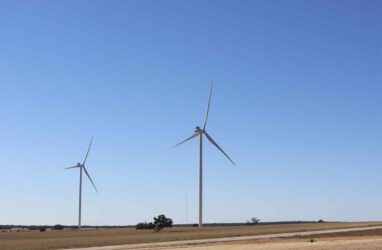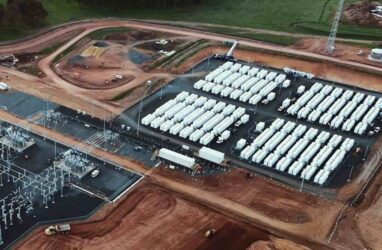Feed aggregator
Korean refiner seeks commercialisation of membrane technology in carbon capture process
Floods are wreaking havoc around the world. Vienna might have found an answer | Gernot Wagner
The Austrian capital has been spared the worst of recent flooding. Its experience could be a lesson in how to tackle the climate crisis
Floods are seemingly unavoidable these days. Florida, North Carolina, Nigeria, Tunisia, Mexico, India, Nepal, Vietnam, Poland and Austria are among the places that have experienced flooding in the last month. Those floods should no longer come as much of a surprise. Climate change leads to more frequent and intense rain almost everywhere on the planet, and most infrastructure, from roads and bridges to canals and hydroelectric dams, is simply not built to withstand such extremes.
That’s where Vienna stands out. The floods that have deluged central Europe over the past two weeks caused plenty of disruptions in Lower Austria, including to a newly built train station meant to connect the burgeoning suburbs to the city. But aside from some disruption to Vienna’s otherwise well-functioning subway system, Viennese homes were largely spared. Why? It’s not because Vienna sits on higher ground than the surrounding areas (by and large it does not). The reason the city escaped the worst of the floods is because of human engineering and political foresight dating back to the 1960s, which emerged in response to earlier floods that devastated parts of the city.
Gernot Wagner is a climate economist at Columbia Business School. He is a member of the scientific advisory board of the Wiener Klimarat, Vienna’s climate council
Continue reading...ETS, CCS collaboration should be on the table at Starmer-von der Leyen summit -think tank
Australia can ride the waves of China’s “green capital tsunami” – but a change in attitude is needed
The post Australia can ride the waves of China’s “green capital tsunami” – but a change in attitude is needed appeared first on RenewEconomy.
Coal extension and public power retailer set battle lines for Queensland’s energy election
The post Coal extension and public power retailer set battle lines for Queensland’s energy election appeared first on RenewEconomy.
Do not pass go: South-west NSW wind project sent to get federal green tick
 A wind and battery project is going straight into the EPBC process for federal approval.
A wind and battery project is going straight into the EPBC process for federal approval.
The post Do not pass go: South-west NSW wind project sent to get federal green tick appeared first on RenewEconomy.
Investors ask US regulator to block JBS listing over environmental concerns
CWNYC24: Regulatory uncertainty dominates North American compliance markets
California power emissions drop YoY in August as renewables regain share, natural gas recedes
INTERVIEW: Biopropane seeks to scale into key component of energy transition
Alberta TIER September spot prices fall to lowest in two years as illiquidity dampens market
The biodiversity jukebox: how sound can boost beneficial soil microbes to heal nature
Battery hopeful licks its wounds after missing out on capacity credits as grid shortfall erased
The post Battery hopeful licks its wounds after missing out on capacity credits as grid shortfall erased appeared first on RenewEconomy.
San Francisco sees hottest day of 2024 as heatwave scorches US south-west
Excessive heat warnings bring elevated wildfire risk, potential for power outages and rising death toll
San Francisco recorded its hottest day of the year on Tuesday, and Phoenix set a record for the hottest 1 October on record, as the National Weather Service predicted record-high fall temperatures across the south-western US.
With temperatures hitting 100F (38C) or higher in many places, officials and local media outlets issued warnings that the heat posed “a significant threat to property or life”. Excessive heat warnings were in place across the region, bringing with it warnings about elevated wildfire risk, the potential for sweeping power outages in California and a rising toll of heat-related deaths, a particularly deadly risk for unhoused people and the elderly.
Continue reading...Offshore hydrogen “energy islands” could save Germany €4 billion per year – report
The post Offshore hydrogen “energy islands” could save Germany €4 billion per year – report appeared first on RenewEconomy.
US dairy operators run pilot to curb methane emissions from livestock barns
As the waters rise, a two-year sentence for throwing soup. That’s the farcical reality of British justice | George Monbiot
Why do the mass killers of the fossil fuel industry walk free while the heroes trying to stop them are imprisoned?
The sentences were handed down just as Hurricane Helene hit North Carolina. As homes were smashed, trucks swept down roads that had turned into rivers and residents were killed, in the placid setting of Southwark crown court two young women from Just Stop Oil, Phoebe Plummer and Anna Holland, were sentenced to two years and 20 months, respectively, for throwing tomato soup at the glass protecting Van Gogh’s Sunflowers. No prison terms have been handed to the people whose companies deliver climate breakdown, causing the deaths of many thousands and destruction valued not at the £10,000 estimated by the court in damage to the painting’s frame but trillions.
Everywhere we see a farcical disproportion. The same judge, Christopher Hehir, presided over the trial of the two sons of one of the richest men in Britain, George and Costas Panayiotou. On a night out, they viciously beat up two off-duty police officers, apparently for the hell of it. One of the officers required major surgery, including the insertion of titanium plates in his cheek and eye socket. One of the brothers, Costas, already had three similar assault convictions. But Hehir gave them both suspended sentences. He also decided that a police officer who had sex in his car with a drunk woman he had “offered to take home” should receive only a suspended sentence. Hehir said he wanted “to bring this sad and sorry tale to its end with a final act of mercy”. The solicitor general referred the case to the court of appeal for being unduly lenient, and the sentence was raised to 11 months in jail.
Continue reading...Alpine dingoes at risk of extinction after Victorian government extends right to cull
At least 468 shot by government controllers last year out of an estimated population of as few as 2,640 in the state’s east, advocates say
- Get our breaking news email, free app or daily news podcast
Traditional owners and dingo advocates say a Victorian government decision extending the right to kill dingoes on private and public land until 2028 could threaten local populations with extinction.
A government order, which took effect on Tuesday, declared dingoes were “unprotected wildlife” under the state’s Wildlife Act. The ruling means dingoes can be killed by trapping, poisoning or shooting across large parts of eastern Victoria, despite being listed as threatened under the state’s Flora and Fauna Guarantee Act.
Sign up for Guardian Australia’s breaking news email
Continue reading...One in three Australians throwing unwanted clothes in rubbish, survey finds
RMIT-lead study recommends a national recycling scheme to reduce the 200,000 tonnes of textiles sent to landfill each year
- Get our breaking news email, free app or daily news podcast
Most Australians are confused about what to do with their unwanted clothes, leading about a third to throw their closet clutter in the rubbish, according to the first national survey of clothing use and disposal habits.
The RMIT-led survey of 3,080 Australians found 84% of people owned garments they hadn’tworn in the past year, including a third who hadn’t touched more than half of their wardrobe.
Sign up for Guardian Australia’s breaking news email
Continue reading...






